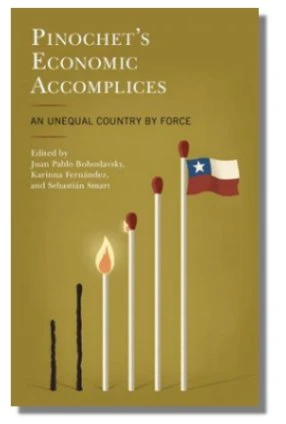Pinochet's Economic Accomplices – An Unequal Country by Force

Blurb
With a focus on Chile, Pinochet’s Economic Accomplices: An Unequal Country byForce uses theoretical arguments and empirical studies to argue that focusing onthe behavior of economic actors of the dictatorship is crucial to achieve basic objectivesin terms of justice, memory, reparation, and non-repetition measures. Thisbook makes visible a number of cases of economic complicity with the Chileandictatorship and explains their links with the radical inequalities the country hastoday while proposing a theoretical framework for their study. Scholars of LatinAmerican studies, history, sociology, economics, business, and human rights willfind this book particularly useful.Book summary
This book skillfully brings together scholars of history, sociology, economics, law and Latin American studies to shed light on the close ties between economics and politics in Pinochet’s Chile. It goes beyond presenting important case studies to also developing theoretical arguments to explain links between different kinds of inequalities in Chile. This is important for understanding the relationships between political and economic injustices more broadly, demonstrating the lessons to be learned for the rest of the world from Chile’s experience. The collection also challenges the so-called Chilean ‘success story’ in important ways as it shows how the unequal economic model is tied to its subordinate democracy. In a thoroughly multidisciplinary manner, the book also explores what role financial assistance played during the Pinochet regime, the role of extractivism and mining expansion for the regime, the role of ‘experts’ during the dictatorship, the role of the media, the dramatic consequences of various forms of privatization, the effects of changing union laws, dismantling of the welfare state, and the expansion of the carceral system.
Comment from our editors:
Recommended by Diversify and Decolonize Economics.

